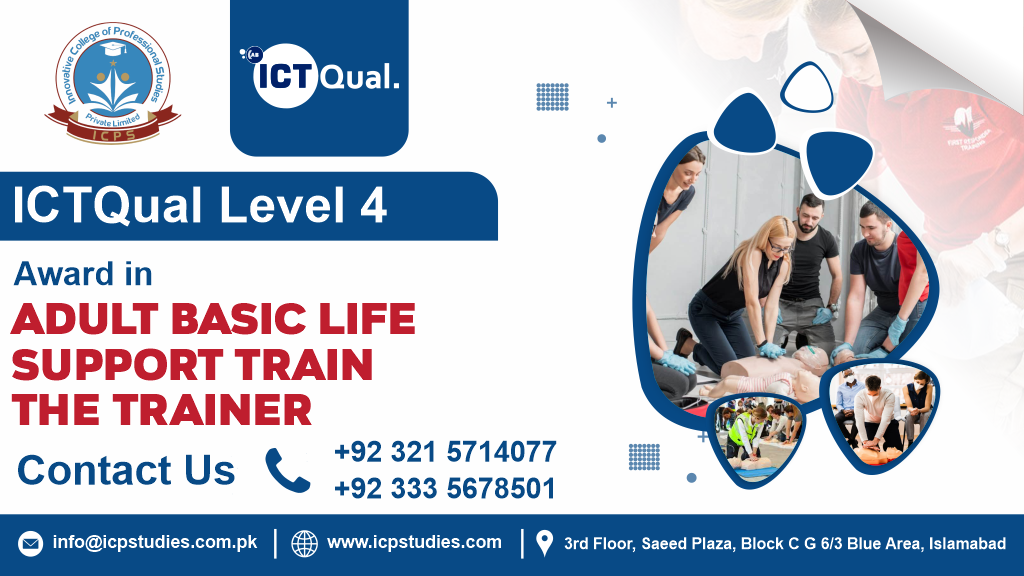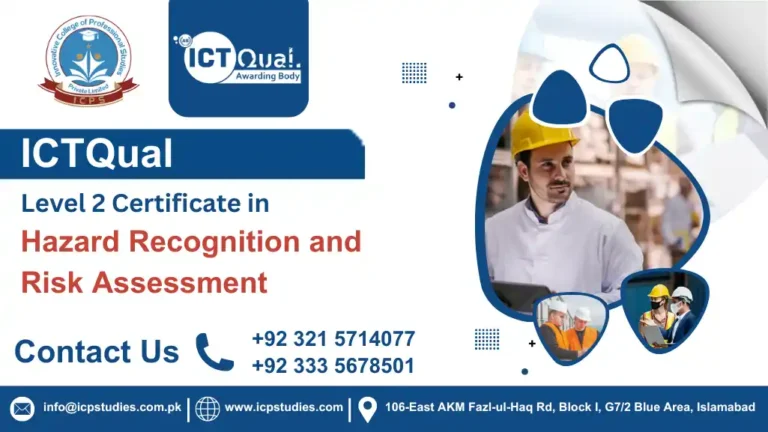In a world where emergencies can strike at any moment, being equipped with life-saving skills is not just advantageous—it’s imperative. The Level 4 Award in Adult Basic Life Support (BLS) Train the Trainer program stands as a beacon of hope, empowering individuals with the knowledge and confidence to be the first res ponders in critical situations.
The Level 4 Award in Adult Basic Life Support Train the Trainer program is not just a one-time certification; it’s a commitment to saving lives. Graduates of the program join a global network of skilled instructors dedicated to promoting health and safety in their communities.
Moreover, the program emphasizes the importance of continuous learning and skill refinement. Instructors are encouraged to stay updated on the latest advancements in BLS techniques and teaching methodologies, ensuring that they remain effective educators and first res ponders
In an unpredictable world, the ability to respond to emergencies with confidence and competence is invaluable. The Level 4 Award in Adult Basic Life Support Train the Trainer program stands as a beacon of hope, empowering individuals to become the first line of defense in critical situations.
Through comprehensive training and a commitment to lifelong learning, participants of the program become agents of change within their communities, spreading life-saving knowledge far and wide. As we continue to navigate the complexities of the modern world, programs like these serve as a reminder of the power of education and the profound impact it can have on saving lives.
All About ICTQual Level 4 Award in Adult Basic Life Support Train the Trainer
Course Overview
The Level 4 Award in Adult Basic Life Support (BLS) Train the Trainer is a specialized program designed to equip individuals with the necessary skills and knowledge to become proficient instructors in adult basic life support techniques. This certification program typically follows a structured curriculum that covers essential topics such as CPR (Cardiopulmonary Resuscitation), airway management, and the use of automated external defibrillators (AEDs) in adult populations
Level 4 Award in Adult Basic Life Support Train the Trainer program plays a crucial role in building a network of skilled instructors who are capable of spreading life-saving knowledge and empowering individuals within their communities to respond effectively to medical emergencies. By equipping participants with the tools and confidence to teach others, the program contributes to the creation of safer and more prepared communities.
Learning Outcomes
The Level 4 Award in Adult Basic Life Support Train the Trainer course is designed for individuals who are passionate about promoting health and safety within their communities and are interested in becoming proficient instructors in adult basic life support (BLS) techniques. This course is particularly well-suited for:
- Healthcare Professionals: Nurses, paramedics, physicians, emergency medical technicians (EMTs), and other healthcare providers who want to expand their skills and take on the role of BLS instructors. These individuals often have a strong foundation in medical knowledge and are seeking opportunities to share their expertise with others.
- Educators and Trainers: Teachers, instructors, and training professionals with experience in adult education who wish to specialize in BLS training. These individuals have a background in instructional design, facilitation, and curriculum development, and are interested in applying their skills to the field of emergency medical services.
- Emergency Responders: Firefighters, law enforcement officers, and other emergency responders who want to enhance their capabilities by becoming certified BLS instructors. These individuals are often the first on the scene of medical emergencies and can benefit from advanced training in life-saving techniques.
- Community Leaders: Community organizers, volunteers, and leaders who are committed to promoting health and safety within their communities. These individuals may work in settings such as schools, community centers, or workplaces and are dedicated to empowering others with life-saving skills.
- Individuals Seeking Career Development: Those looking to pursue a career in healthcare, emergency medical services, or education may find value in obtaining certification as a BLS instructor. This course can enhance their credentials, increase their employability, and open up opportunities for advancement in their chosen field.
- Anyone with a Passion for Helping Others: Ultimately, this course is for anyone who has a genuine desire to make a positive difference in the lives of others. Whether you’re a seasoned healthcare professional or someone with a keen interest in learning life-saving skills, this course provides the knowledge, training, and certification needed to become a proficient BLS instructor and contribute to safer and more prepared communities.
Admission Criteria
- Foundations of Adult Basic Life Support (BLS) Training:
- Understand the principles and importance of basic life support in adult populations.
- Identify the key components of the Chain of Survival and their significance in improving outcomes for cardiac arrest victims.
- Recognize the importance of early intervention and effective CPR in saving lives.
- BLS Techniques and Protocols:
- Demonstrate proficiency in performing high-quality CPR according to current guidelines.
- Understand and apply the appropriate techniques for providing ventilations during CPR.
- Familiarize with the protocols for managing various cardiac and respiratory emergencies.
- Assessment and Recognition of Life-Threatening Emergencies:
- Develop the skills to recognize signs and symptoms of life-threatening emergencies in adult patients.
- Demonstrate the ability to conduct rapid assessments and prioritize interventions based on patient presentations.
- Understand the importance of gathering relevant patient history and information during emergency situations.
- Airway Management and Choking Relief:
- Learn and practice techniques for establishing and maintaining an open airway in adult patients.
- Demonstrate proficiency in performing maneuvers to relieve choking in conscious and unconscious individuals.
- Understand the potential complications associated with airway obstruction and the appropriate interventions to address them.
- Automated External Defibrillator (AED) Use:
- Gain proficiency in operating an AED and understand its role in the management of sudden cardiac arrest.
- Learn to recognize when and how to safely use an AED in conjunction with CPR.
- Understand the importance of early defibrillation in improving outcomes for cardiac arrest patients.
- Effective Teaching and Training Strategies:
- Develop effective communication skills for delivering clear and engaging training sessions.
- Learn to adapt teaching strategies to meet the diverse learning needs of participants.
- Understand principles of adult learning and apply appropriate instructional techniques.
- Assessment and Feedback:
- Gain proficiency in assessing participant performance during practical skills sessions.
- Provide constructive feedback to participants to facilitate skill development and improvement.
- Develop strategies for ongoing assessment and evaluation of participant progress.
- Training Program Development and Delivery:
- Learn to design and implement comprehensive BLS training programs tailored to specific audiences and settings.
- Develop skills in lesson planning, curriculum development, and training material preparation.
- Understand the importance of program evaluation and quality improvement processes.
- Legal and Ethical Considerations:
- Understand legal and ethical responsibilities associated with providing BLS training and emergency medical care.
- Familiarize with relevant regulations, standards, and guidelines governing BLS training and practice.
- Develop strategies for maintaining patient confidentiality and respecting individual rights and autonomy.
- Continuous Professional Development:
- Recognize the importance of ongoing learning and skill maintenance in the field of BLS training.
- Identify opportunities for professional development and continuing education.
- Commit to staying updated on current guidelines, best practices, and advancements in BLS techniques and training methodologies.
Ideal Candidate
- Basic Life Support Certification: Prospective participants are generally required to hold a valid certification in basic life support (BLS) for adult populations. This certification should be issued by a recognized provider such as the American Heart Association (AHA), the European Resuscitation Council (ERC), or an equivalent organization.
- Healthcare or Medical Background: While not always mandatory, many training programs prefer candidates with a healthcare or medical background due to the nature of the course content. This may include professionals such as nurses, paramedics, emergency medical technicians (EMTs), physicians, or allied healthcare providers.
- Teaching or Training Experience: Prior experience in teaching or training, particularly in healthcare or emergency medical services (EMS) settings, may be advantageous. Candidates with experience in delivering educational programs or conducting workshops are often better equipped to transition into the role of a BLS instructor.
- Good Communication Skills: Effective communication is essential for delivering BLS training sessions and providing clear instructions to participants. Prospective candidates should possess strong verbal communication skills and the ability to convey complex information in a concise and understandable manner.
- CPR and First Aid Knowledge: A solid understanding of cardiopulmonary resuscitation (CPR) and first aid principles is fundamental for success in the course. Candidates should have a working knowledge of basic life support techniques, including chest compressions, rescue breathing, and choking relief.
- Commitment to Lifelong Learning: Given the dynamic nature of healthcare and emergency medicine, candidates should demonstrate a commitment to ongoing learning and professional development. This includes staying updated on current guidelines, best practices, and advancements in BLS techniques and training methodologies.
- Legal and Ethical Compliance: Prospective participants must be willing to adhere to legal and ethical standards governing the practice of BLS training and emergency medical care. This includes maintaining patient confidentiality, respecting individual rights and autonomy, and complying with relevant regulations and guidelines.
- Physical Fitness: While not a strict requirement, candidates should be in good physical health and capable of performing CPR and other BLS techniques effectively. The course may involve hands-on practical exercises that require physical exertion, so participants should be prepared to actively participate in training sessions.
These entry requirements help ensure that candidates possess the necessary knowledge, skills, and attributes to successfully complete the Level 4 Award in Adult Basic Life Support Train the Trainer course and become proficient BLS instructors.
Key Takeaways
Mandatory Units
FAQs Related to ICTQual Level 4 Award in Adult Basic Life Support Train the Trainer







